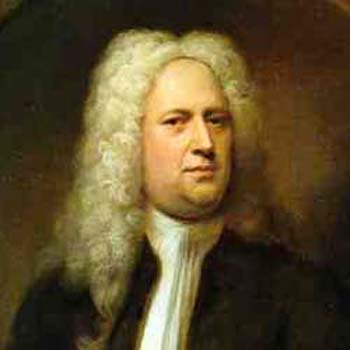Europe commemorates four great musical composers
 Berlin - The work of German-born composer George Frideric Handel (1685-1759) is being celebrated in a major way in Europe this year with concerts and music festivals marking the anniversary of his death in London 250 years ago.
Berlin - The work of German-born composer George Frideric Handel (1685-1759) is being celebrated in a major way in Europe this year with concerts and music festivals marking the anniversary of his death in London 250 years ago.
Handel, who was born in Halle, Germany, spent the last 36 years of his life in London composing a prolific array of operas and oratorios, the most famous of which is The Messiah with its rousing Hallelujah chorus.
A seven-week Handel Festival began in London in February, and will be followed by similar events in the German cities of Halle and Goettingen in mid-April and May.
The music festivities will climax with a radio festival on April 19 when more than 40 European cities are to broadcast Handel concerts. The BBC also plans to broadcast all 42 of the maestro's operas during the course of the year.
In Milan, La Scala's season will include the composer's opera Alcina.
But it is not only Handel who gains attention in 2009.
Two hundred years ago - in 1809 - Austrian Josef Haydn, composer of the German national anthem and writer of numerous symphonies and string quartets, died in Vienna aged 77.
That was also year when Felix Mendelssohn Bartholdy, composer of Fingal's Cave (The Hebrides Overture) and the Scottish Symphony, was born in Hamburg, Germany.
As well as that, 2009 is the 350th anniversary of the birth of Henry Purcell (1659-1695), the great English composer and Westminster organist, whose stage works included The Fairy Queen (based on Shakespeare's Midsummer Night's Dream) and the music for Dryden's King Arthur.
But it is the work of Handel and Haydn which are gaining most media attention.
Handel's huge talent was recognized early on when the Duke of Saxe-Weissenfels heard him playing the organ at the age of 10 in Halle. He was so impressed that he persuaded the boy's father, a doctor in Halle, to let him train as a musician.
Soon, Handel was to develop into a prolific baroque composer of operas and oratorios, with his Messiah, Water Music and Music for the Royal Fireworks instantly identifiable to music lovers around the world.
Settling in London in his late 30s, the composer's music was soon so popular that a monument was erected in his honour. At the Handel House Museum in Brook Street where the composer lived half his life and became extremely wealthy, an exhibition is devoted to him.
As he aged, Handel went blind, and suffered minor strokes and severe gout which afflicted his speech and thought.
Reputedly a man of hasty temper, he had a generous side, giving money lavishly to a London orphanage and home for the destitute during his lifetime.
Following his death on April 14, 1759, aged 74, some of Handel's operas remained largely untouched for almost 200 years, deemed "unperformable" due to their convoluted plots.
In more recent decades, however, there has been a turnaround in the public's appreciation of his work, according to Laurence Cummings, musical director of the London Handel Festival, who talks of many of his operas again re-entering the "mainstream repertoire."
Similarly, the work of Joseph Haydn is also winning a positive reappraisal 200 years after his death.
Strong in praise of Haydn's music is the German baritone Thomas Quasthoff. He claims the Viennese composer was a universalist who drew on people for his music and, in doing so, "had the gift of being able to laugh benevolently at himself and at mankind."
In a recent interview in the monthly "Atlantic Times," he was quoted as saying: "I wish politicians could be forced to listen to more Haydn. Then they would learn a lot about the human creature, about what people long for, what holds society together at its core, and that you do not have to take every failure seriously."
Haydn, he contended was "a kind of Shakespeare of the opera. He show us that it is worthwhile to quietly smile about people."
Daniel Barenboim, the conductor of the Berlin State Opera agrees.
He placed Haydn's Farewell Symphony this year on the program of the legendary New Year's Day concert at the Golden Hall of the Vienna Musikverein for the first time.
In the final movement, musicians leave the podium one by one so that eventually only a chamber-music ensemble is left. The piece was Haydn's way of protesting against the small number of days his musicians were allowed to take off.
The Austrian court subsequently heeded his message, allowing orchestra members more time off.
Curiously, it was one of Haydn's more mediocre pieces - say some music critics - which the Germans chose to be their national anthem.
August Heinrich Hoffmann Hoffmann von Fallersleben wrote lyrics to it in 1841 and it was made the anthem in 1922. Later the Nazi regime twisted the anthem's original meaning, inflating it into a bombastic martial piece.
Today, the official anthem is the third verse only, beginning with "Einigkeit und Recht und Freiheit" - unity and justice and freedom.
The West German government decided after the Second World War that the music should not be blamed for the misuse it had suffered at the hands of the Nazis, but they scrapped the first two verses which begin "Deutschland, Deutschland ueber alles." (dpa)